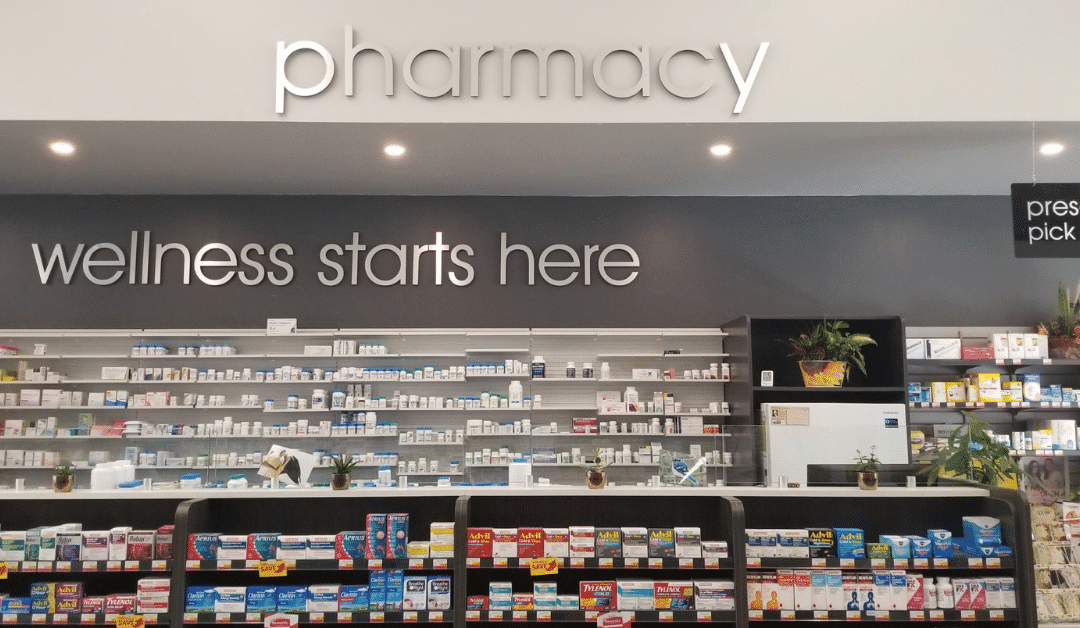A new business is an exciting adventure, especially if it's in pharmacy. But, every step you take is important. Learn how to start a pharmacy in 10 steps.
1. Reach Out To Experts In The Pharmacy Community
The first step to starting your own pharmacy business is to reach out to other business owners and pharmacy experts.
Although you are an independent business owner, you do not need to isolate yourself from other knowledgeable professionals familiar with the pharmacy system. Meet with pharmacy professionals and ask them about the challenges they faced and what advice they wish someone told them.
2. Research The Pharmacy Business
To open a successful pharmacy, you will need to complete adequate research on business structure, operations, competition, patients, and location.
You do not want to open a community pharmacy in a location where there are already too many pharmacies. Complete a competitive analysis to gauge whether opening a pharmacy is worthwhile. A good rule of thumb is to take the population divided by the number of pharmacies in the area. If the number < 3,000, that means there is too much competition already for patients.
If it is viable to open a pharmacy in your selected community, take the next step to get to know your target market through market research. Who are your potential customers? What are their needs? What do their lives look like? This information will later influence your pharmacy business plan, sales strategies, and more.
You also need to choose the right physical location. A good pharmacy location should be accessible, have little traffic, and be in a central population. Many pharmacy locations are also close to medical offices for patients' convenience. If you're not sure where to set up, it could be worthwhile starting near a large chain pharmacy because they've already researched the best location.
3. Selecting A Banner
Take the time to set up meetings with various banners and buying groups to learn about their banners and discuss the pros and cons of joining.
The biggest advantage of joining a banner or buying group is purchasing power. Together, they can get better pricing on their inventory purchases from a pharmaceutical supplier compared to independent pharmacies.
Some banners even offer a new store incentive, cash upfront for a licensed pharmacist joining them.
Being part of a banner can also help you take the guesswork out of developing a pharmacy brand, logo, store design, etc. because all of that is already taken care of for you.
Many let you operate as you wish, giving you freedom while others are more restrictive. Having a meeting with a few different banners and/or buying groups is always a good idea.
4. Plan Your Course Of Action

Pharmacy ownership is not something that should be planned on a whim. You should create a detailed business plan to capture the scope of your entire business. A solid business plan should include an:
Executive Summary — Your business name and the major highlights of the details included in the plan
Business Description — What pharmacy services you'll offer, how filling prescriptions will work, etc.
Competitive Analysis — An analysis of the other pharmacies you will be competing against and how your business will be competitive
Market Strategies — A marketing plan that you will follow to get your products, services, and brand to your customer base.
Operation and Management Plan — The managerial and legal structure of your pharmacy
Financial Projection — Estimate operating expenses (i.e., inventory and staffing costs) and potential revenue
A well-developed business plan and financial projection are required to secure bank financing; if you do a poor job, the bank will not offer favourable loan terms. Reach out to your accountant to help you with this. Most accountants have experience securing financing for clients at more favourable terms, such as larger loan size, longer interest-free period, and lower interest rates.
5. Understand The Legal Requirements Of Opening A New Pharmacy
There are many things to think about at this stage. You should consider insurance, taxes, licensing requirements, and the structure of your business.
Work with accountants or financial advisors familiar with pharmacy that can give recommendations on what type of corporation to set up and who should be the shareholders. Having family members as shareholders can help you save hundreds of thousands in taxes down the line when you sell your pharmacy.
You should also receive legal advice from a trusted lawyer. A lawyer should review your lease agreement and simplify the legal jargon for you.
Work with a designer and contractor that has experience with pharmacy and can take care of all the construction, zoning, permits, and health & safety standards requirements.
6. Get Your Finances Sorted
How much money is required to start a pharmacy? Well, it depends on the size of your store, the larger the space the more it will cost.
On the lower end, for a 750 to 1,250 sq ft store, you're looking at $250K to $350K. For larger spaces, especially if you are going to build out examination rooms for a doctor, you're looking at around $400K to $500K. If you are going to be a compounding pharmacy, add another $100K.
Banks will typically finance 100% of these costs, via a term business loan that finances all leaseholds improvements and equipment costs. However, banks don't finance inventory purchases.
Banks will often give you a business operating line of credit, that you can use to purchase your inventory and help you pay the bills for the first few months of operations.
It is a good idea to work with a trusted advisor during this step. Select an accountant or financial advisor that has experience with pharmacy. They can help you make smart financial decisions for your business right from the start.
7. Starting Construction
Usually, construction takes about 3 to 6 months to complete. If your contractor says 3 months, budget for 4 because issues always arise.
During construction is when you will finalize decisions about what pharmacy software & POS system to use, security systems, etc. in preparing your pharmacy for opening.
Before construction is complete, start preparing your application for store accreditation from your college. Your college will then schedule a site inspection to ensure your pharmacy satisfies all legal requirements in operating an independent pharmacy. Once you receive your certificate, you are ready to open!
8. Gather Inventory And Supplies

The most important step is stocking the shelves with retail products and medications. With most stores, opening inventory order typically costs anywhere from $40K to $80K.
Usually, you are given a grace period for your opening order, meaning you can place your opening inventory order and pay for it 180 days later. Tie it back to knowing your market and your patients to try and anticipate what drugs patients will fill at your store.
While it doesn't look great having empty shelves, it's not a bad thing in the beginning. It gives you time to assess what types of patients actually start coming to your pharmacy so that you know exactly what to stock.
9. Market Your Pharmacy
Multiple pharmacies tell us that patients don't know that they are there. So building awareness leading up to opening is critical.
We have gathered some successful activities to help you get marketing ideas. Here are some ways you can market your business:
- Host health clinics at your pharmacy. Local events every month or quarter talking about a different subject like how to manage high blood pressure will get the word out.
- Reach out to doctors in the area to introduce yourself, and direct mail flyers or brochures to let them know your small pharmacy is opening for business. Make sure to mention any additional services you have, especially if you are offering compounding.
Most pharmacy owners spend hundreds of thousands on the construction of a beautiful pharmacy only to find that no one walks in once you turn on your neon "Open" sign.
10. Open Your Doors
After all of that work to start a pharmacy, you can open your doors. We recommend starting with a soft pharmacy opening to figure out the bumps early on. Host a grand opening can happen several weeks to months later and invite the Mayor. Typically, when the Mayor is invited to community events, the event is featured in the local newspaper and radio, which can help bring people (and potential patients) to your pharmacy.
- With The New Capital Gains Tax Changes for 2024, What are the Best Places to Tax Shelter My Money? - November 1, 2024
- Business Overhead Insurance: What it is & Why You Need It - October 18, 2024
- How Long Do I Need to Keep Receipts? - October 5, 2024



My name is Atoy Ghirmu, from Edmonton, AB. I am looking to open a pharmacy with a partner most probabily with a pharmacist. I need information and financial support and the steps I should follow. Thank you